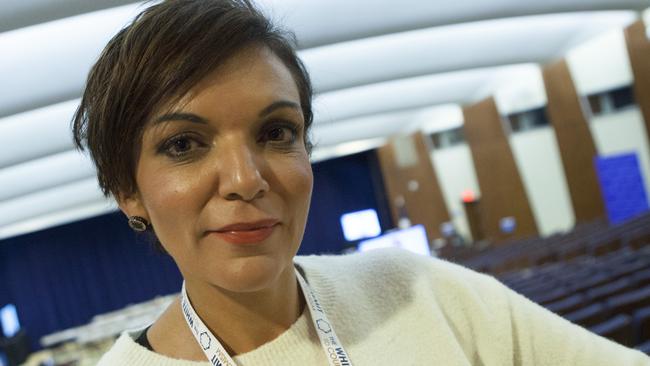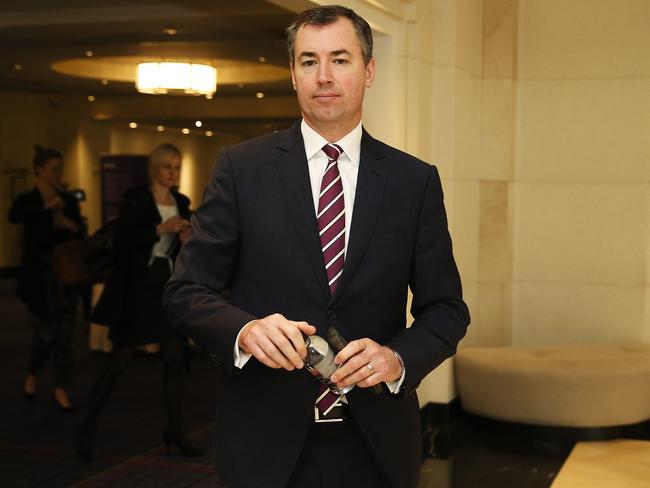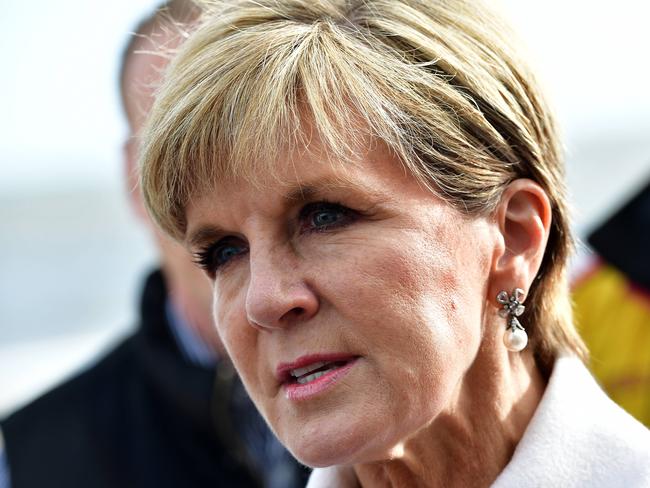Dr Anne Aly: Candidate on ‘kill list’ at the centre of the election’s latest scare
SHE’S the subject of the election’s latest scare campaign, but Labor candidate Anne Aly has more pressing fears.

SHE’S the subject of the latest scare campaign in what’s becoming the most scare-driven election build-up in recent history, but Labor candidate Anne Aly has more pressing fears than being the subject of smear by government figures.
Justice Minister Michael Keenan earlier this week launched an attack against the deradicalisation advocate turned Labor candidate, who is running in the marginal WA seat of Cowan.
After saying Dr Aly showed poor judgment by helping a controversial self-styled Islamic preacher have his jail sentence reduced, Mr Keenan has been called out for accusing her of being soft on terrorism.
Junaid Thorne, who flew domestically under a fake name, had his term cut to a minimum of four months last year after tendering a letter of support from Dr Aly to the NSW District Court.
She was operating in a government-funded role as part of her early intervention and deradicalisation program.
“I think that shows pretty poor judgment,” Mr Keenan told ABC radio in Perth.
Dr Aly, who founded the body People Against Violent Extremism, said the government had supported her deradicalisation work, and said she was the victim of a despicable smear campaign.
She’s also had Opposition Leader Bill Shorten come to her defence, scolding “the attack dogs of the Liberals”.

He yesterday pointed out Dr Aly — “a migrant girl who’s come across here and done very well for herself” — was a well respected researcher and leader in counter-radicalisation having been invited to the White House to speak on the topic, and that she had even had her own life threatened for her hard work.
“If President Obama and the Department of Homeland Security regard her as a global expert on deradicalisation, I think we can do a little better than Michael Keenan trying to imply the opposite,” Mr Shorten said.
“In fact, I’ll go as far as to say: Anne Aly has made it clear because of her views of standing up, of counter-radicalisation, she has been put on the kill lists of extremist groups.”
Dr Aly first came out about the threats she had faced in a blog post addressed to former prime minister Tony Abbott, saying she was put on a “who-to-kill” list that had been published online, and received regular hate mail.
But despite requests from Dr Aly and Mr Shorten to “back off this one altogether”, the Liberal Party seems determined to continue to attack the Labor candidate and the party as a whole on its weaknesses when it comes to national security.
Speaking on ABC radio this morning, deputy Liberal leader and Foreign Minister Julie Bishop said Mr Keenan was “quite rightly pointing out (Dr Aly) criticised our national security efforts”.
“She did write a letter for the known hate preacher Junaid Thorne in an attempt to get him off jail time, and that was not part of the role that the Federal Government was funding her for, not to write references for them,” she said.

“Our point is that she’s not supporting a number of our national security efforts, and this is a pattern across the Labor Party we now see that there are about 50 Labor candidates and members who disagree with Bill Shorten when he says that he backs the Turnbull government approach to border protection, he’s got 50 people within his ranks that don’t.”
The Liberal Party has only this week begun to go hard on Labor on national security as it sharpens its attacks as polling day nears.
Mr Shorten has claimed his party’s stance on national security is in line with the government's, and even complimented Mr Turnbull on being “strong on national security” in a radio interview earlier the campaign.
Mr Turnbull has been restrained in his commentary on the Labor Party’s national security policy, saying he respects Dr Aly.
Though he said Mr Keenan was right in his comments that Dr Aly does not agree with “substantial elements of the government’s counter terrorism national security policy legislation”, he said her opinions were at odds with her party’s leader.
“The leader of her party, Mr Shorten, says he agrees entirely with our legislation and our police. It is clear she does not,” he said.
Ms Bishop questioned Mr Shorten’s strong stance, saying he had disunity within his party to deal with.
“When Bill Shorten stands up and says we’re at one with the government on national security and border protection that’s not true because members of his party are not,” she said.




